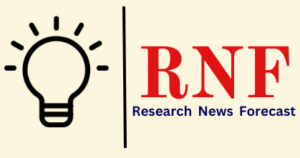Organic Sanitary Pad Market Growth 2023- Trends Under COVID-19, Top Brand Overview, Revenue, Business Challenges and Future Opportunities Report 2033: SPER Market Research

A menstruation product created from organic materials such as organic cotton or plant-based fibres is known as an organic sanitary pad. It distinguishes itself from conventional pads by excluding synthetic chemicals, perfumes, and colours that are usually included in them. The phrase “organic” denotes that the pad’s ingredients were cultivated without the use of pesticides, herbicides, or genetically modified organisms. These pads are environmentally friendly and may be biodegradable or compostable. They provide an alternative to standard pads, lowering the hazards caused by toxic chemicals and encouraging a better option for individuals and the environment.
According to SPER market research, ‘Organic Sanitary Pad Market Size by Product Type, By Design Type, By Disposability, By Age Group, By Price, By Distribution Channel – Regional Outlook, Competitive Strategies and Segment Forecast to 2033’ state that the Organic Sanitary Pad Market is predicted to reach USD XX billion by 2033 with a CAGR of 8.1%.
The organic sanitary pad market is expanding as people become more aware of health and environmental issues. People are becoming more aware of the possible hazards connected with traditional sanitary pads, such as chemical exposure, which has resulted in a need for organic alternatives. Individuals are also thinking about how their actions may affect their health and the environment. This increased understanding has resulted in a desire for natural and organic feminine hygiene products. Many customers are actively looking for sanitary pads manufactured from organic and ecological materials that are devoid of synthetic ingredients. This trend towards natural and organic solutions is propelling the organic sanitary pad industry forward.
Request For Free Sample Report @ https://www.sperresearch.com/report-store/organic-sanitary-pad-market.aspx?sample=1
The organic sanitary pad business faces hurdles due to a lack of knowledge and education. While there is an increasing awareness of these pads, a large section of the population is still unaware of their presence and the benefits they provide. Limited education and advertising efforts stymie market expansion since potential customers may be unaware of organic alternatives. Furthermore, the greater price of organic sanitary pads vs conventional pads works as a deterrent for budget-sensitive consumers. The idea that organic products are more expensive may dissuade people from switching, limiting market growth.
However, the epidemic has produced delays in the worldwide supply chain, affecting sanitary pad manufacture and delivery. Lockdowns, limitations, and restricted industrial capacity have made obtaining raw materials and sustaining effective production levels difficult. These interruptions have hampered the availability of organic sanitary pads in some areas, thereby impeding market growth.
Geographically, in the global sanitary napkin market, the Asia Pacific region is prominent. This can be linked to rising disposable earnings and an overall increase in the region’s living conditions. Demand for sanitary napkins, particularly organic choices, is increasing as economies rise and people’s financial means expand. Furthermore, increased awareness about personal hygiene and health in Asia Pacific has aided market expansion. Additionally, some of the market key players are Azah Sanitary Pads, Corman SpA, COTTON HIGH TECH SL, Hannah Health One Inc., Naturalena Brands, Ontex BV, Rael Inc., Others.
For More Information, refer to below link:-
Organic Sanitary Pad Market Future Growth
Related Reports:
Follow Us –
LinkedIn | Instagram | Facebook | Twitter
Contact Us:
Sara Lopes, Business Consultant – U.S.A.
SPER Market Research
+1-347-460-2899





